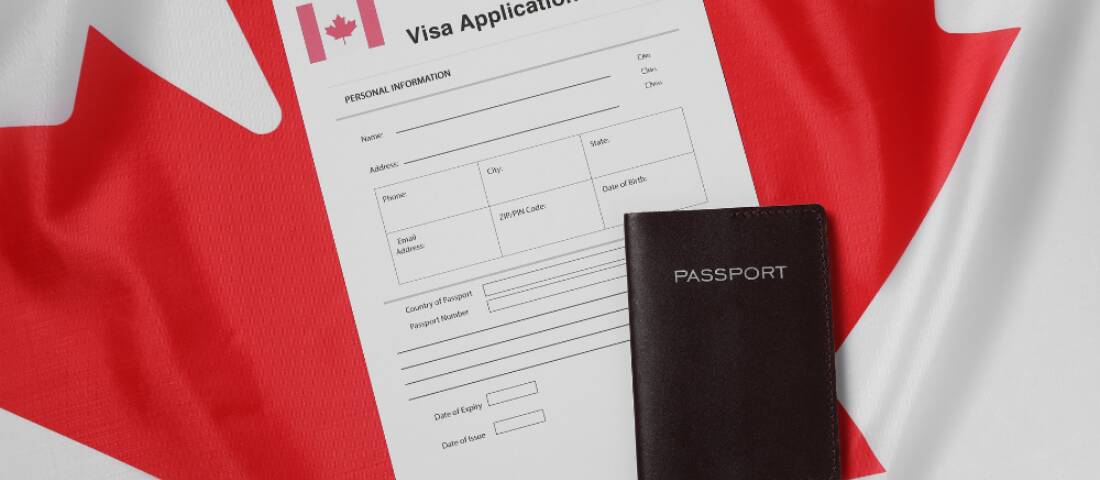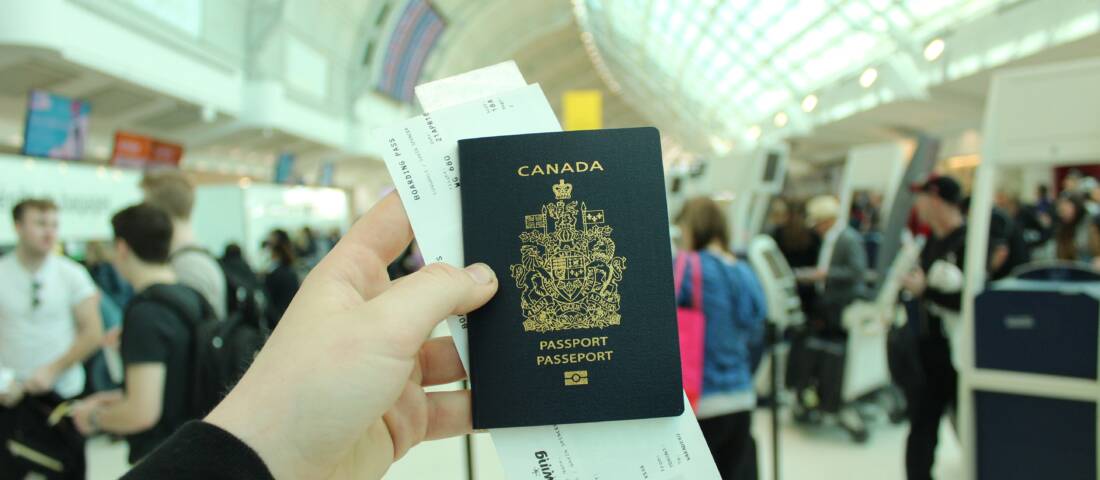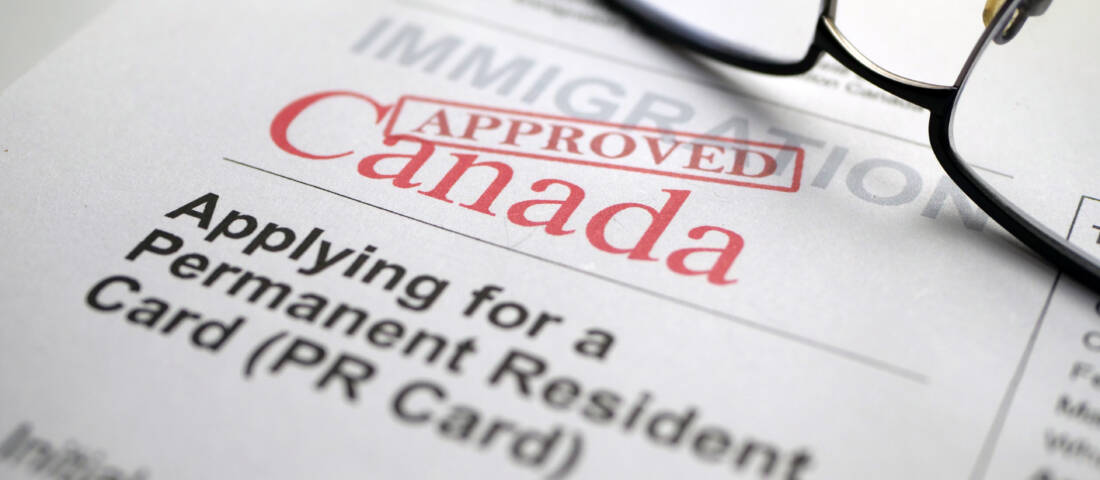Canada offers incredible opportunities for immigrants to live and work in the country, both temporarily and permanently. There are many strategies and options available for individuals seeking to make Canada their new home. Whether you are pursuing economic opportunities, reuniting with family or seeking refuge, Canada offers a diverse range of immigration pathways tailored to meet various needs and circumstances. Here are the top 9 ways to immigrate to Canada to achieve your Canadian Dream and embark on a new chapter in the Great White North.
BOOK YOUR FREE CASE EVALUATION
Top 9 Ways To Immigrate To Canada
1. Express Entry (EE)
Canada has issued 35,970 ITAs via Express Entry from January through April 2024. The Express Entry system is the economic immigration program the Canadian government uses to oversee applications for specific immigration programs, such as the Federal Skilled Worker Program, Federal Skilled Trades Program and Canadian Experience Class. New category-based priority job Express Entry criteria launched in May 2023 allow Canada to extend Invitations To Apply to prospective permanent residents who have in-demand specified skills, training or language ability, including STEM occupations.
Canada's Express Entry expanded in 2021 and made 16 more occupations eligible for Express Entry and immigration and permanent residency in Canada:
Aircraft assemblers
Heavy equipment operators
Bus drivers
Truck drivers
Pest controllers
Residential and commercial installers
Estheticians
Correctional service officers
Sheriffs and bailiffs
Elementary and secondary school teachers and assistants
Pharmacy technicians
Nurse aides
Dental assistants
Payroll administrators
Other repairers and servicers
Regulatory officers
2. Provincial Nominee Program (PNP)
Provincial Nominee Programs (PNPs) allow Canadian provinces and territories to nominate individuals for permanent residency based on their specific economic needs and have witnessed a surge in popularity in recent years. PNPs can fast-track Canadian immigration and provide a more tailored route to permanent residency for skilled workers and entrepreneurs who align with the economic needs of specific Canadian provinces and territories. Canada's Provincial Nominee Programs (PNPs) surpassed Express Entry system as the primary pathway for economic immigration in 2022 and invited 83,500 new permanent residents to Canada. IRCC’s PNP target increased to 105,500 in 2023. Canada's 2024-2026 Immigration Levels Plan announced in November plans to welcome 500,000 newcomers each year, with an increase in immigration targets through PNP:
- 2024: 1100,000
- 2025: 120,000
- 2026: 120,000
Alberta's new immigration stream under the Alberta Advantage Immigration Program (AAIP), the Alberta's Tourism and Hospitality Stream will help fill labour shortages in the tourism industry, a significant contributor to the province's economy.
3. Study Permit
If you are admitted to a Canadian institute of higher learning, you could qualify for a study permit, enabling you to reside and pursue your education in Canada throughout your program's duration. Essential requirements for a study permit include an acceptance letter from an accredited educational establishment, evidence of ample funds for tuition and living costs and a clear criminal background. After finishing your studies, you may have the opportunity to seek a work permit and potentially obtain permanent residency.
The Canadian study permit program has undergone some major changes recently including:
- The financial minimums are increased: You must have almost $21,000 available to show you can live here in Canada
- Removed the open spousal work permit options for people who are not taking programs that are Master's professional or PhD
4. Family Sponsorship
Permanent residents and citizens of Canada can sponsor their parents, grandparents, spouses, partners, dependent children and even their conjugal partners to live and work in Canada under Family Class Sponsorship. In 2024, Canada's Immigration, Refugees and Citizenship (IRCC) announced a renewed focus on family reunification. This comes amidst concerns over application backlogs and delays faced by families seeking to reunite under the federal program, particularly in Quebec. Family sponsors must demonstrate financial capability to support their immigrating family member(s).
5. Work Permit
If you've received a job offer from a Canadian employer, you could qualify for a work permit, granting you the right to reside and be employed in Canada for a designated period. To meet the criteria for a work permit, you must
- possess a valid job offer from a Canadian employer
- fulfill the job's specific requirements
- prove your intention to depart Canada upon the permit's expiry
A work permit can also serve as a pathway to permanent residency. Work permit pathways include:

6. Investment Immigration
There are a few different options when it comes to investor visas in Canada. If you choose the Start-up Visa program, you will need to invest $200,000 if your funds come from a designated Canadian venture capital fund. If you get your investment from a designated angel investor group in Canada, you only need $75,000. Your lawyer can help you determine where to source your investment from.
The exact requirements vary depending on each visa. However, you should prepare to invest a significant amount of money into the Canadian economy if you want to secure an investment visa. In addition, you should also review the general requirements for Canadian visas and permanent residency. You may need to undergo medical exams and criminal background checks before your visa is approved by Canadian authorities. Another important consideration is the language requirement. Remember, Canada is a bilingual country. You may pass the language requirements if you have an acceptable mastery of either English or French.
7. Temporary Foreign Workers
The Temporary Foreign Worker Program (TFWP) provides temporary employment to foreign workers to address labour needs in Canada. After melting into the Canadian work culture, some people shift their temporary status to permanent. Employers must still secure a Labour Market Impact Assessment (LMIA), indicating that no Canadian citizen or permanent resident was available to fill the position.
Canadian companies can bring high wage temporary foreign employees into Canada with 10 day priority processing, one of the fastest immigration processing times in the world.
8. Self-Employed
If you are self-employed and can demonstrate that you have the experience and skills to be self-employed in Canada, you may be eligible to work and live in Canada. To qualify as a self-employed person, IRCC requires that individuals must:
- have 2 years of relevant experience
- show that they intend to become self-employed in Canada
- show that they have sufficient funds to move to and live in Canada, including with their dependents
- score at least 35 points on a selection grid designed to determine whether you will be able to make an economic contribution to Canada
The top 5 options to immigrate to Canada as a self-employed person include:
- Temporary Work Permit For Self-Employed Individual
- Investor Visa
- Self-Employed Physician
- Cultural Immigration to Canada for Self-Employed Artists and Actors
- Athletic Immigration for Coaches, Trainers and Athletes
9. Digital Nomads
Canada's Digital Nomad Visa is a new program to allow individuals who work remotely to live and work in Canada for up to six months. The Digital Nomad Visa was announced in June 2023 to encourage remote workers to work in Canada launched in June 2023 and is open to anyone who meets the following eligibility criteria:
- You must be working for an employer outside of Canada.
- Your job must be able to be performed remotely from anywhere in the world.
- You must have sufficient funds to support yourself and any dependents during your stay in Canada.
- You must meet all other Canadian immigration requirements, including health, security and criminal background checks.
Digital nomads who work for a foreign employer can stay in Canada for up to six months under current immigration rules, without a work permit. A digital nomad only needs visitor status to relocate to Canada. Under the Canada Digital Nomad Visa, if a digital nomad finds a job with a Canadian employer, they can apply for a temporary work permit and stay in Canada for another 3 years.
BOOK YOUR FREE CASE EVALUATION
Are You Ready To Fulfill Your Canadian Dream?
Canadian immigration is a complex process. For personalized guidance and to ensure a smooth application journey, consider consulting a licensed immigration lawyer. With careful planning and the right support, Canada could be your new horizon!
Ackah Business Immigration Law has a team of experienced immigration professionals who work closely with businesses and individuals to smooth their way to new opportunities in Canada and the United States. By using our firm, you can fast-track your immigration process and avoid common mistakes that could lead to rejection and the potential loss of your chance to work in Canada or the U.S. We provide ongoing support throughout the entire process, so you can be confident that you are taking the necessary steps to secure your visa.
Ackah Law has offices in Toronto, Calgary and Vancouver to help people move to new opportunities in Canada and the U.S. Get in touch with Ackah Business Immigration Law and contact us at (587) 854-3866 or send an email us at contact@ackahlaw.com.








